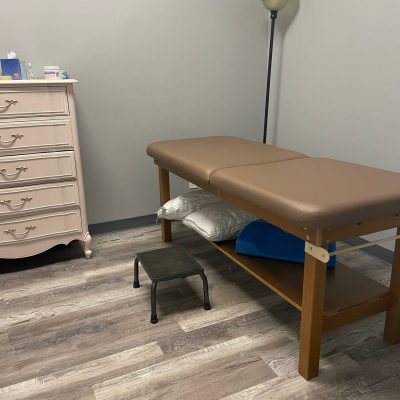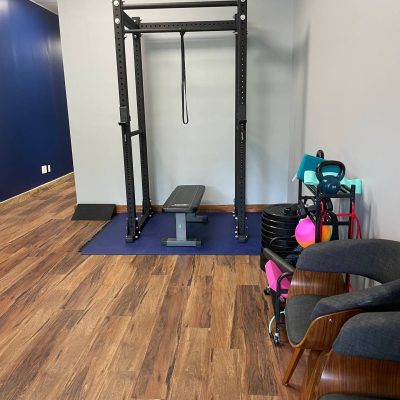Aside from being uncomfortable, constipation can also lead to more serious pelvic floor problems. The National Institute of Diabetes and Digestive and Kidney Disease defines constipation as having “fewer than three bowel movements a week, or hard, dry and small bowel movements that are painful or difficult to pass, or the feelings that not all stool has passed.”
Constipation can lead to increased urinary urge and frequency due to the inability of the bladder to completely fill. Over time, constipation can cause strain to the pelvic floor organs due to the increased pressure placed on them and can lead to Pelvic Organ Prolapse (POP). In simple terms, POP is what happens when one or more of a woman’s organs in the pelvic area drops from their normal position. This can lead to heaviness in the pelvic region, tissue protruding from the body, urinary incontinence, and/or bowel problems.
Watching what you eat and drink is a great step in preventing constipation! Foods that are high in fiber are easy to digest and will allow your body to produce steady bowel movements. Adult women should aim for 25 grams of fiber daily in their diet.
Whether you enjoy eating sandwiches, salads, dips, oatmeal, whatever your favorite foods may be, make an effort to add fruits and vegetables to them. Try to add color to your plate! The various colors serve a nutritional purpose. Therefore, it’s important to “eat a rainbow”, meaning you eat fruits and vegetables from each color and get a variety of important vitamins and nutrients.
The next time you find yourself going for white bread, white rice, or regular pasta, stop. Replace those foods with whole-grain bread, brown rice, and whole-wheat pasta. Nowadays, you can also find pasta made from vegetables such as cauliflower or zucchini. Also try to add multigrain cereals, whole wheat crackers, and oats into your diet if they are not already present.
Beans are well known to cause gas, which also proves that they help improve bowel movements. Beans make great additions to salads, soups, and even main courses. There are also many bean alternatives to common foods. For example, try a black bean burger instead of a cheeseburger.
In general, it’s better to get fiber through real foods in your diet. Sometimes food allergies or other lifestyle choices can prevent people from eating high-fiber foods. Fiber supplements can be a good alternative in this case.
The lining of your digestive tract, like every surface of your body, is covered in microscopic creatures, mostly bacteria. This micro-ecosystem, called a microbiome, plays a large role in your health. A healthy microbiome promotes a healthy immune system and supports a weight management plan.
Prebiotics are a type of fiber that helps Probiotics, the tiny living organisms in your gut, grow. You can add living microbes directly to your system by ingesting Probiotics, as Both prebiotics and probiotics may support helpful bacteria and other organisms in the gut. Prebiotics include berries, bananas, chia seeds, flaxseeds, quinoa, oats, onion, carrots, garlic, sweet potatoes, apples, among other items. Probiotics include yogurt, kombucha, apple cider vinegar, pickles, kefir, some cheeses, sauerkraut, miso, tempeh, kimchi, and lactobacillus milk.
I personally recommend Psyllium Husk capsules because it is an all-natural form of soluble and insoluble fiber. It is the main ingredient in a popular orange fiber powder; however, that mix also has sugar and artificial dye.
Staying hydrated helps to flush out toxins and keep urine and bowel movements steady. The general rule of thumb is to aim for 50% of your body weight in fluid ounces of liquid per day, primarily water.
Hot drinks can also help to stimulate bowel movements. Enjoy a cup of coffee or tea in the morning, but be sure to drink your water afterward!
I always recommend my patients get a Squatty Potty! This simple change can make a shocking change in ease of having a bowel movement through postural changes of elevation of the feet.
If constipation continues to occur, it is always best to come to see us so we can make sure your condition is addressed in the most beneficial way for you and your pelvic floor!







